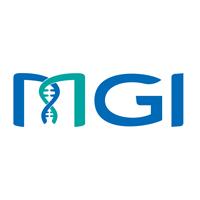South Africa's HIV Research: Unlocking the mysteries of elite controllers

In the global fight against HIV, South Africa stands at a unique crossroads. Home to approximately 7.8 million people living with HIV as of 2022, the country bears the world’s largest HIV burden. Yet, it’s precisely this challenge that has positioned South Africa at the forefront of groundbreaking HIV research, with potential implications for the millions of individuals living with the disease worldwide.
South Africa’s diverse population offers researchers an unparalleled opportunity to study HIV in a genetically rich environment. At the heart of South Africa’s HIV research are studies focused on “elite controllers” (ECs), a rare group of HIV-positive individuals who naturally suppress the virus to undetectable levels without antiretroviral therapy.
Advancements in genomic research are fuelling the journey to uncover the secrets of elite controllers. Until relatively recently, scientists in South Africa were unable to access affordable platforms capable of human whole genome sequencing. However, with the help of advanced sequencing tools and technologies from MGI, researchers from the South African Medical Research Council (SAMRC) and the University of KwaZulu-Natal (UKZN) are inching closer to unlocking the genomic secrets that contribute to their unique immune response.
Elite controllers and genomic research
While elite controllers typically represent less than 1% of people living with HIV globally, South African researchers have observed a higher prevalence among individuals of African descent. This demographic offers unique research opportunities that could lead to breakthroughs in HIV treatment.
“Elite controllers are able to control the HIV viral load to undetectable levels for an extended period of time, despite not taking any antiretroviral therapy,” explains Dr Veron Ramsuran, associate professor at the UKZN. “They are the perfect candidates to study because understanding and trying to mimic their genetic makeup using some sort of therapeutic intervention would help us design better therapies.”
According to Dr Ramsuran and his colleagues, the key to unlocking the secrets of elite controllers lies in advanced genomic research, particularly whole genome sequencing (WGS).
“Africa’s human genome only represents 2% of the world’s human genome that has been sequenced thus far. We clearly don’t know a lot about African genes. We still have to learn the contribution towards diseases,” says Dr Ramsuran. “The idea with this project is to identify what polymorphism and mutations exist within individuals of African descent and how they are associated with disease progression.”
Recognizing the need to fill this knowledge gap, Dr Ramsuran and Prof Thumbi Ndung’u, Director for Basic & Translational Science at the Africa Health Research Institute, teamed up in 2019 with local South African clinics and Rizwana Mia, Senior Program Manager in Precision Medicine and at the time, the Head and founder of the newly developed SAMRC-MGI Partnership Genomics Centre. The aim: to use whole genome sequencing to identify and understand the polymorphism and mutations within individuals of African descent and how they relate to HIV.
“We screen participants by testing viral load and single counts. This tells us whether they are actually naturally controlling the virus,” explains Dr Ndung’u. “We then enrol them in a longitudinal study, following up every three months. We repeat the CD4 and viral load tests, but we also use the blood samples to study their genetic makeup, immune responses, and how the virus is responding to those immune responses.”
This comprehensive approach allows researchers to build a detailed picture of the interplay between genetics, immune function, and viral behaviour. The insights gained from these studies could lead to new therapeutic approaches that mimic the natural control exhibited by elite controllers.
Rizwana Mia explained: “We have been studying unique cohorts, including children and their families, to gain a more comprehensive understanding of HIV progression and control.” She highlighted “one such cohort of children we term paediatric viraemic non-progressors. They have HIV and a high viral load, but also a high CD4 count. Interestingly, they maintain better health compared to HIV-positive peers who quickly progress to AIDS.”
She continues: “We needed to understand how these children are managing to do this. What is the difference between them? In order for us to understand these differences, we chose to study them in relation to their immediate family members.”
By studying these children in relation to family members who are also HIV positive, researchers hope to uncover genetic and immunological factors that contribute to natural HIV control over time. Moreover, this family-based approach provides a comprehensive view of how HIV progresses and how some individuals naturally control the virus.
The study of these unique cohorts is not limited to children. Researchers are also investigating adults who have lived with HIV for extended periods without progressing to AIDS, even in the absence of antiretroviral therapy. These long-term non-progressors offer another window into the mechanisms of natural HIV control.
Enabling cutting-edge genomics in South Africa
WGS research in South Africa is powered by advanced technology, including MGI’s DNBSEQ sequencing platforms. As all three experts highlight, the introduction of this technology has been crucial in generating high-quality data efficiently and cost-effectively, enabling researchers to conduct large-scale sequencing projects that were previously unfeasible in the region.
“The whole genome sequencing project started in 2019, around the same time when we finalised and launched our dynamic centre,” explains Mia. “Essentially, at this time, we had no real infrastructure to do large-scale next-generation sequencing. We wanted to move our laboratory workflow to scale.”
She continued: “Having this MGI workflow localised in South Africa made it possible for us to run this project, especially since the sequencing was rather cost-effective to run.” She added that it was indeed a privilege to work with MGI in designing this state-of-the-art facility which has significantly enhanced South Africa’s capacity to conduct high-throughput sequencing and genomic analysis. It serves as a hub for researchers across the country, fostering collaboration and accelerating the pace of discovery in HIV and all research in general.
Dr Ndung’u emphasises the broader implications of this technological advancement: “It’s crucial for Africans to be involved in genetic studies and drug impact assessments, so that medications can be optimised for people of African descent. This technology allows us to contribute significantly to the global understanding of HIV and its treatment.”
The impact of this research extends beyond HIV. The insights gained from studying elite controllers and the broader South African population have far-reaching implications for understanding other diseases and developing targeted treatments. As Dr Ndung’u highlights, genetic variations discovered in these studies could inform the development of new treatments and vaccines not only for HIV but for other diseases prevalent in African populations.
A notable example is the upcoming National 110K Human Genome Programme, which aims to sequence the genomes of 110,000 South Africans, providing a comprehensive understanding of the country’s genetic diversity and its impact on various diseases, including infectious diseases such as HIV. This is a momentous programme being set up by Rizwana Mia (SAMRC) and the South African Department of Science and Innovation.
Community involvement and future prospects
Although technology has played an undeniable role in driving genomic studies in the country, the success of any and all HIV research heavily depends on community involvement. Treatments may have evolved to help those living with the condition, but the reality is that HIV presents a myriad of physical and emotional challenges, as well as social stigma, so it is important that the contributions of participants are recognised and respected.
As Mia emphasises, “Involving the community is critical for the success of our studies. The support and participation of people living with HIV are what drive our research forward.”
Dr Ndung’u echoes this sentiment, “To study HIV in sub-Saharan Africa, it has to be done with the community. The community is critical for this type of work. Because if the community supports it, the idea will get accepted and the research will progress more effectively.”
This community-centred approach not only ensures ethical research practices but also helps in the dissemination and acceptance of research findings, potentially leading to better implementation of new treatments and prevention strategies.
The involvement of local communities goes beyond just participation in studies. It includes education and awareness programs that help people understand the importance of genetic research in HIV treatment. These initiatives aim to bridge the gap between complex scientific concepts and community understanding, fostering a sense of ownership and engagement in the research process.
Moreover, this approach helps address historical mistrust in medical research among some communities, particularly in Africa. By involving communities from the ground up, researchers are building trust and ensuring that the benefits of their work reach those who need it most.
Dr Ramsuran concludes with a vision for the future: “Understanding the human genome in Africa will hopefully contribute to better therapeutics specifically designed for individuals of African descent. If we continue on this path by studying elite controllers and long-term non-progressors, we can perhaps design better therapies that are targeted for the African population specifically, with potential global applications.”
South Africa’s HIV research represents a powerful convergence of scientific innovation, community engagement, and global collaboration. As this work progresses, it offers hope not just for those living with HIV in South Africa but for people affected by the virus around the world. The journey ahead is long, but in the labs and communities of South Africa, the next chapter in the fight against HIV is being written, one genome at a time.
About MGI

MGI Tech Co., Ltd. (or its subsidiaries, together referred to MGI) is committed to building core tools and technologies that drive innovation in life science. Our focus lies in research & development, manufacturing, and sales of instruments, reagents, and related products in the field of life science and biotechnology. We provide real-time, multi-omics, and full spectrum of digital equipment and systems for precision medicine, agriculture, healthcare and various other industries. Founded in 2016, MGI has grown into a leader in life science, serving customers across six continents and have established research, manufacturing, training, and after-sales service facilities globally. MGI stands out as one of the few companies capable of independently developing and mass-producing clinical-grade gene sequencers with varying throughput capacities, ranging from Gb to Tb levels. With unparalleled expertise, cutting-edge products, and a commitment to global impact, MGI continues to shape the trajectory of life sciences into the future. To learn more, please visit https://en.mgi-tech.com/, LinkedIn, X, and YouTube.











